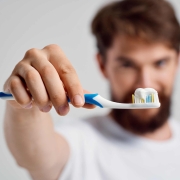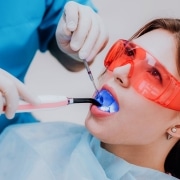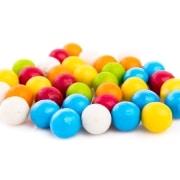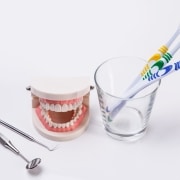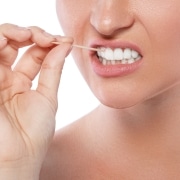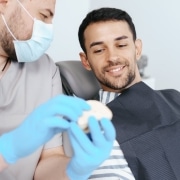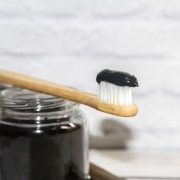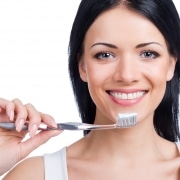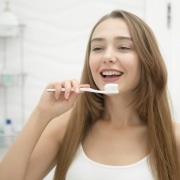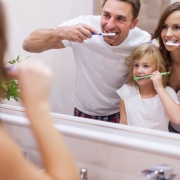Should I be Cleaning My Tongue?
Anyone who has been inside a drugstore can see that there are products available for cleaning your tongue. Your dentist in Owensboro, KY always advises patients to brush, floss and rinse, but not much is heard about cleaning the tongue. Is this extra step in oral hygiene really necessary, or is it marketing hype to get you to buy products?
Why You Should Clean Your Tongue
Hundreds of microscopic papillae, or finger-like projections that give your tongue its rough texture, cover your tongue. These papillae, interestingly, generate a pattern on your tongue that is as individual as your fingerprints. However, they also leave a carpet-like surface on your tongue, making plaque, germs, food debris, and dead skin cells easy to collect. This can result in foul breath as well as a variety of other oral health problems. In addition to seeing a dentist on a regular basis to keep your tongue healthy, there are several simple methods to keep it clean and enhance your general health.
How to Clean Your Tongue
By adding a minute or two to your daily oral hygiene regimen, you can keep your tongue clean and healthy. Here are two ways to get it done.
1. Brush your Tongue with your Toothbrush
Brushing your tongue with a toothbrush is the simplest approach, since you’re already standing there with a toothbrush in hand. After cleaning your teeth, rinse your brush and brush the whole surface area of your tongue for 15-30 seconds. Rinse once more.
2. Use a Tongue Scraper
Extend your tongue as far as possible. Place the tongue scraper on the back of your tongue. While exerting mild pressure, push the scraper on your tongue and slide it toward the front of your tongue. Rinse after every scrape by running it under warm water to remove any dirt or bacteria. During the tongue scraping, spit out any extra saliva that has accumulated. Repeat as needed.

